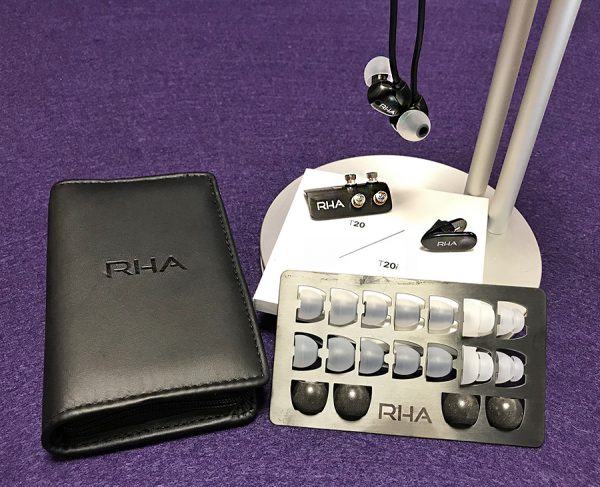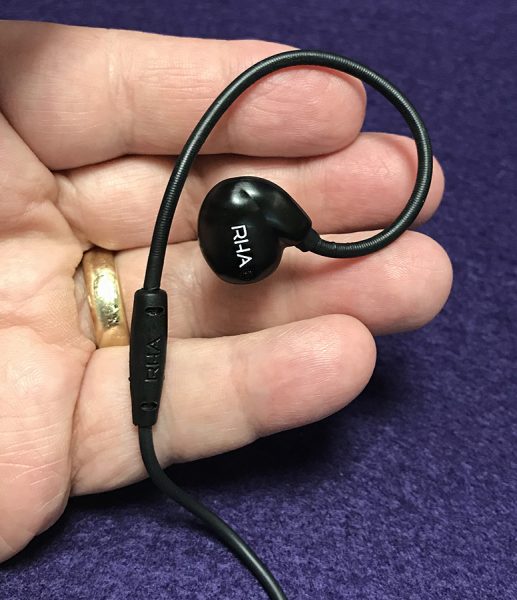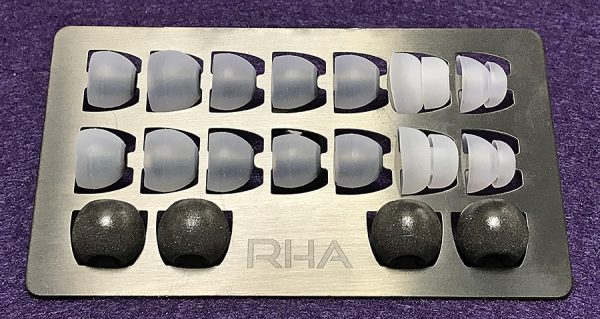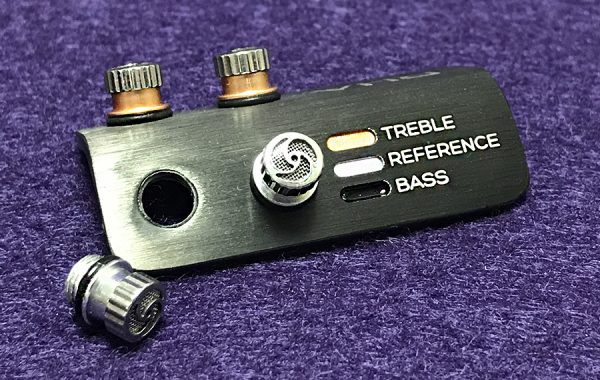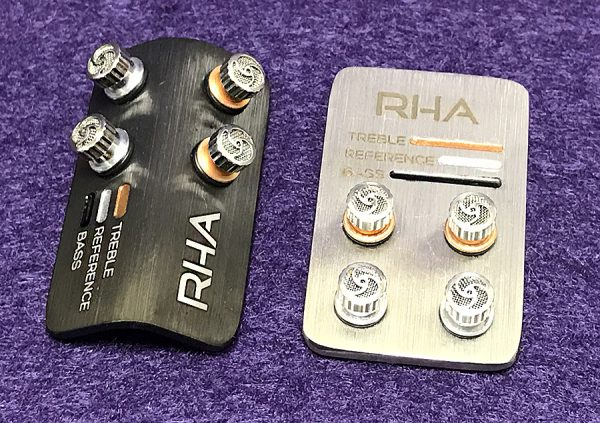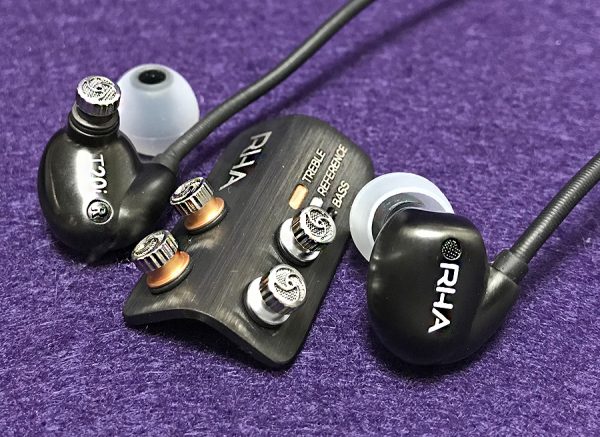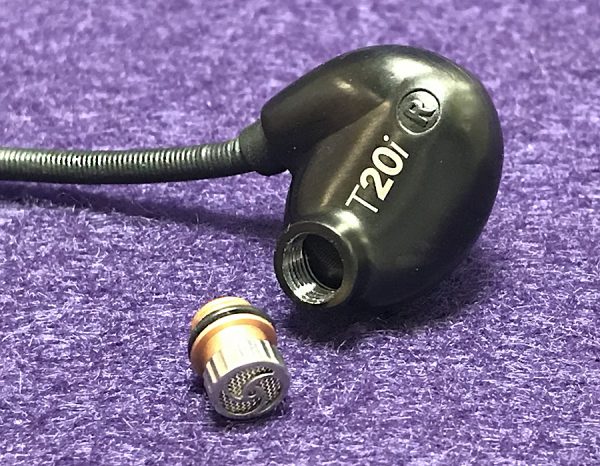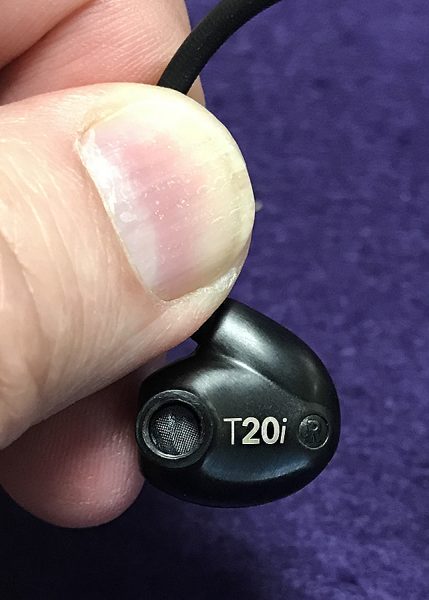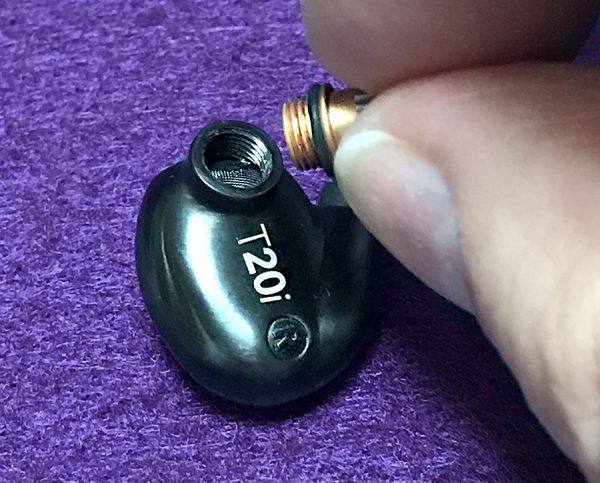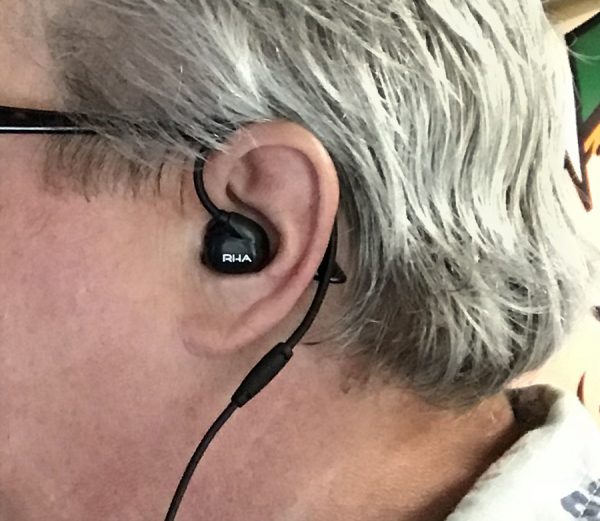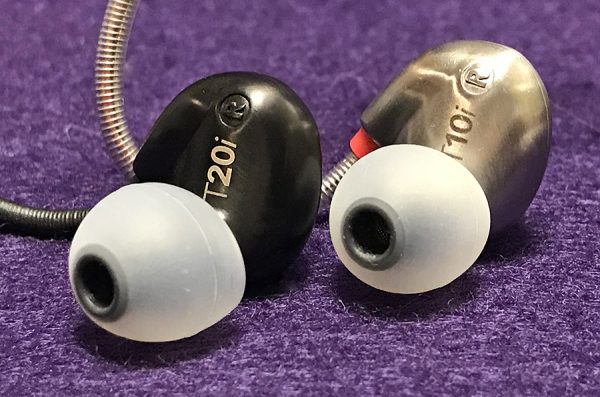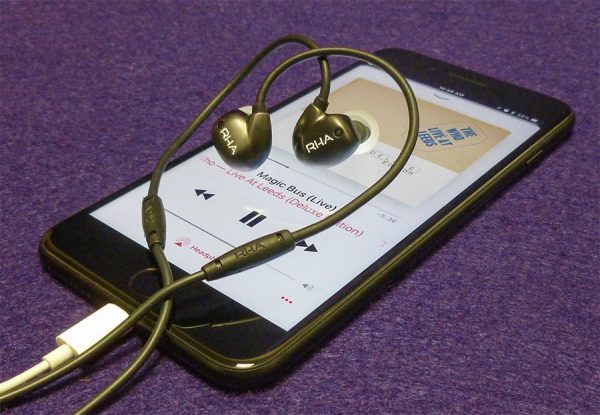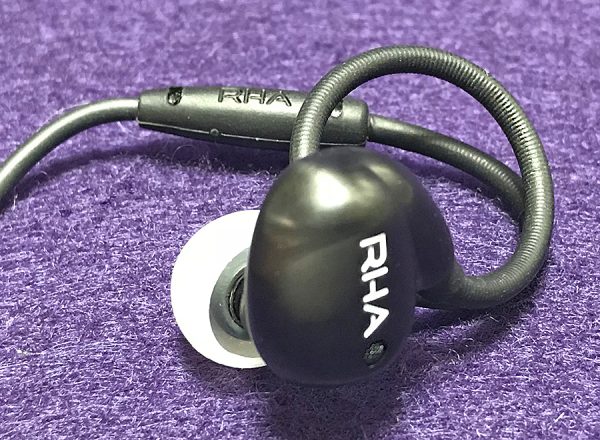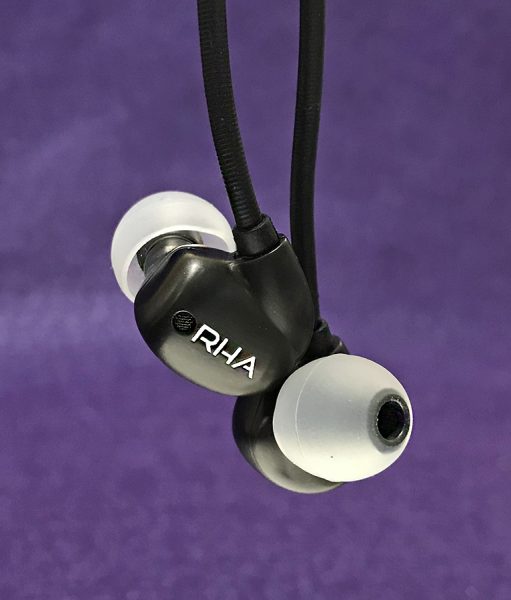
A couple of years ago, I reviewed the RHA (Reid Heath Audio) T10i earphones. I liked them for their sound quality, but mostly I like them because I could swap filters to make the earphones sound more bright, bassy or neutral, depending on what I was listening to or even my mood. It was like having 3 earphones for the price of one, which was a novelty then. Now, that’s not so unusual anymore as many earphones have replaceable audio filters. RHA has since canceled the T10 earphone and now offer the T20 and T20i. Is it worth it to upgrade from the T10?
When the T10 and T10i earphones were released, they were a departure from what RHA had previously done. The T10s were different in design and manufacturing. A new injection-molded stainless steel process used to manufacture the T10i was revolutionary and RHA has continued this process for the T20 and T20i earphones. Injection molding allows the T20i to have a more organic shape. Combine that shape with a black color and you get something that looks like it came from another world—in a good way. Plus, this organic shape fits into the ear quite comfortably. Many metal earphones sold today can be less than natural-feeling. Not these.
Note: The difference between the T20 and T20i is that the “i” model has a built-in Apple specific microphone with music controls. Also, the T20 is silver and the T20i is black. The T20i costs $10 more. Otherwise, they are identical. For simplicities’ sake, this review will use the term T20 instead of T20i. Using these controls is easy and intuitive. The mic also works quite well for phone calls. Truthfully though, I don’t use wired mics or controls all that much with earphones.
The wires from the T20 wraps around the back of the ear. This can reduce microphonics—that sound you hear when tapping on the cord. The wire has a memory when curved to fit behind the ear. It holds its shape which can help keep the T20s in place. It feels like RHA also improved on this memory wire over the T10 earphones. Its smoother feeling and holds its shape better. The T20s are not noise canceling, but they do isolate quite well.
Like other RHA earphones, the T20s come with an almost embarrassing array of extras. Are ten pairs of tips in many sizes and shapes enough for you? How about an aluminum tray to hold them all? Let’s not forget those three filters that can screw into a thick metal holder for safe keeping! Also included is a shirt clip and a roomy case to hold literally everything. The soft case is a zippered faux-leather material with elastic bands and a mesh pocket inside. I would have preferred a harder case at this price, but even so, it will help keep the T20s free of dust and moisture.
The tips all fit snuggly into individual slots punched out of the holding tray. As long as they stay on the tray, there is little chance of losing them. RHA improved the filter holder by simply bending it. This simple change keeps the threaded part of the small and delicate filters away from any surface reducing the chance of nicks which could make it difficult screwing them into the earphone. Ingenious.
As with the T10 earphones, the T20s come with three filters: Treble, Bass, and Reference (neutral). Each filter is self-explanatory. The filters are identical as on the T10s except that since the T20’s sound signature has changed a bit, its effect on how the filters behave is slightly different. For instance, when the bass filter is used on the T20, it is less bassy and a bit more accurate sounding than when used on the T10. The same differences are true on both the treble and reference filters, but less noticeable.
What is noticeable is the quality of the audio. The T10 earphones have a custom dynamic speaker driver that has a warm and inviting sound. This works well with modern recordings. The added accuracy of the T20s makes whatever song I’m listening to sound more refined and relaxed.
Silly audiophile terms, I know—but that’s the best way to describe it. Part of the reason for this improvement is what RHA calls a dual coil driver. RHA states that “The T20’s dual coil driver features two independent voice coils, each responsible for producing part of the frequency range for refined, high-resolution audio.” Basically, it means that the speaker can be more efficient by equally split the workload of delivering audio. Granted, the resulting difference between the older T10 and T20 is not as dramatic as one might think, but it is noticeable—especially when you listen to the T20s for a while and then go back to the T10.
The T20 requires more power to drive than the T10 earphones do. As a result, the T10s will sound a tiny bit louder than the T20s—all things being equal. However, the difference is slight and doesn’t matter much.
Boy George’s version of “The Crying Game” packs a surprising emotional punch. The bass undercurrent is just powerful enough to be felt without overpowering the mids or high frequencies. The T20s help give this song an ethereal aura that I don’t hear when compared to regular speakers. It’s an advantage good earphones can have over external audio speakers.
If the opening thunderclap from The 12” mix of Bryan Ferry’s “Slave to Love” doesn’t wake the dead, I don’t know what will. This aural assault demands that earphone speakers react quickly and then recover just as fast. It’s not an easy thing for speakers to do and usually requires expensive materials. The T20 earphones handle this pressure—letting the power of the thunder come in at full force without competing with the heavy backbeat that follows. Everything remains separate and clean sounding.
The Cars song, “Moving in Stereo” is always a fun headphone test simply because of its—well, stereo. Because this is a good test song, I can forgive the slightly tacky 80s style keyboards and electronic drums. There is both complete left/right separation as well as more subtle effects sprinkled throughout the song that the T20s bring out quite well.
“Magic Bus” from The Who’s album “Live at Leeds” rocks so hard that it’s almost a completely different song than the original from the album “Tommy.” Listening to this song on the T20 earphones makes you feel like you’re sitting in the audience right in front of the stage. Not only do the T20s let you hear every guitar string being plucked, you can also hear guitarist Pete Townsend’s mistakes as he plays, which makes this song even more fun to experience.
Positives
- Excellent sounding
- Three filters can tune sound
- Improvement over T10
- Same price as older T10 earphones
- Well made
Negatives
- Hard case would be better at this price
Final thoughts
With the T20i earphones, RHA has produced a worthy successor to the T10i earphones. Sometimes the improvements are subtle, sometimes more noticeable. How much improvement is noticeable depends on the song or album. The build quality is as good or better than the T10i and the black color scheme of the T20i looks cooler and more bad-a** than the silver-colored regular T20. If you already have the T10 earphones and they are still in good shape, save your money. But if you are looking to replace older earphones and want to try what RHA has to offer, you can’t go wrong with the T20 or T20i earphones.
Price: $199.95
Where to buy: RHA and Amazon
Source: The sample for this review was provided by RHA.

